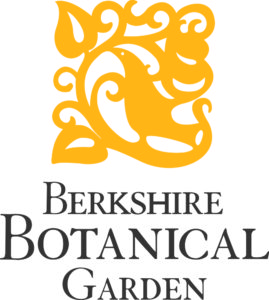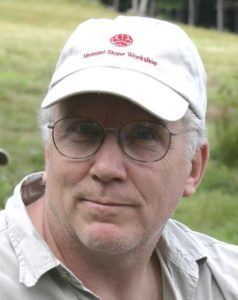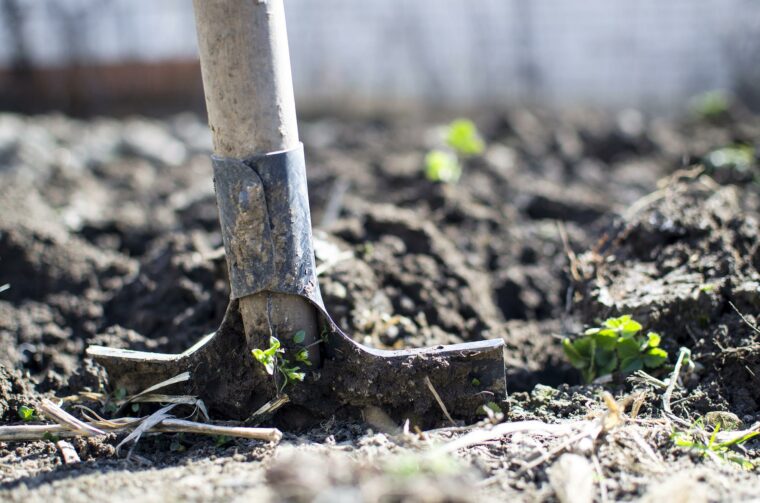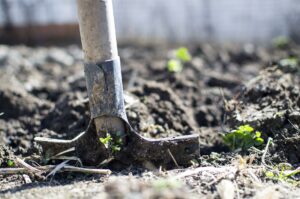
Please hold that fertilizer!
By Thomas Christopher
I just read that even before Russia’s invasion of Ukraine and a consequent disruption of the market for natural gas (the principal feedstock for synthetic nitrates) the cost of fertilizer in the U.S. had surged 300 percent in 2021. That makes the shock I have been experiencing at the gas pump seem modest. That’s a very serious problem for our farmers.
It’s also an incentive for gardeners to change their behavior. For many of us, fertilization is just a matter of routine, with the lawn and other plantings getting their spring “feed,” whether they need them or not.
Indeed, Americans apply an estimated three million tons of fertilizers to their lawns every year. Very few of the amateur greenskeepers bother with a soil test to see whether their turf in fact needs the boost, relying instead on rules of thumb and the advice of fertilizer retailers. The fertilizer consumption in other areas of the landscape doesn’t approach that of the lawn, but in aggregate is still considerable.
This results in a lot of wasted dollars. Far worse is the impact on the environment. Lawn fertilizers are a major source of pollution to our waterways, helping to cause the eutrophication of lakes and ponds, and even dead zones in estuaries, bays and beyond. Fertilizers also have a significant impact on the atmosphere. The manufacture of synthetic nitrates, the major element in most lawn fertilizers and one of the three principal ingredients in non-organic garden fertilizers, relies on an extravagant consumption of natural gas, both as an ingredient in the manufacturing process and as a fuel to provide the necessary heat. The burning of the natural gas produces four to six tons of carbon dioxide, the principal greenhouse gas implicated in global warming, for each ton of nitrate produced. In addition, whatever nitrate is not taken up by your plants, if it doesn’t wash away to pollute a nearby stream, is likely to escape as nitrous oxide gas, which is actually 300 times as potent a greenhouse gas as carbon dioxide. It’s worth noting that even organic fertilizers will release nitrous oxide, especially if used too generously.
Other fertilizer ingredients, such as phosphates, also come with an environmental cost. Besides, over-fertilization is likely to injure plant roots and promote soft, lush growth that is especially appealing to deer and plant-eating insects.
Aside from investing in a soil test to see if your garden actually needs fertilization, there are other practices you can adopt to reduce your need for such a boost. With respect to lawns, you can transition to a less greedy turf. Turf-type tall fescues and fine fescue grasses flourish with only half as much nitrates as Kentucky bluegrass. By interplanting with white clover, and leaving the grass clippings in place, you can reduce that need even further, especially if you do not irrigate so that your lawn goes dormant in hot weather. Too generous irrigation also tends to wash soluble nutrients out of your soil – don’t over-water the garden.
Nurturing the life in the soil, the bacteria, fungi and other organisms that make up the so-called “soil food web,” is also a key to reducing reliance on fertilizers. I recently caught up with Jeff Lowenfels, author of a long-running garden column in the Anchorage Daily News and the best-selling book Teaming With Microbes: A Gardener’s Guide to the Soil Food Web. Jeff, a multi-talented man who is also a leading attorney in Alaska, is currently running for Congress, but he graciously made time to send me the following advice:
“As long as there is organic material to nurture the soil food web, gardeners do not need to fertilize their plants. Mycorrhizal fungi associate with plant roots and bring phosphorus, nitrogen, zinc, copper and water to the plant in return for exudates from the plant. Bacteria in the Rhizosphere around roots are actually taken into the plant and stripped of nutrients before being put back out into the soil. Plus, the consumption of bacteria and fungi in the soil release nutrients to the soil which can then move to the roots.”
That’s a position I can wholeheartedly endorse. It seems I will benefit more by bolstering the organic content of my soil with compost than by applying fertilizers. What’s more, I can produce compost myself with materials harvested at home such as autumn leaves. That will be easier on my wallet, as well as far better for the environment.
Be-a-Better-Gardener is a community service of Berkshire Botanical Garden, located in Stockbridge, Mass. Its mission, to provide knowledge of gardening and the environment through a diverse range of classes and programs, informs and inspires thousands of students and visitors each year. Thomas Christopher is a volunteer at Berkshire Botanical Garden and is the author or co-author of more than a dozen books, including Nature into Art and The Gardens of Wave Hill (Timber Press, 2019). He is the 2021 Garden Club of America’s National Medalist for Literature, a distinction reserved to recognize those who have left a profound and lasting impact on issues that are most important to the GCA. Christopher’s companion broadcast to this column, Growing Greener, streams on WESUFM.org, Pacifica Radio and NPR and is available at berkshirebotanical.org/growinggreener
Be-a-Better-Gardener is a community service of Berkshire Botanical Garden, located in Stockbridge, Mass. Its mission, to provide knowledge of gardening and the environment through a diverse range of classes and programs, informs and inspires thousands of students and visitors each year. Thomas Christopher is a volunteer at Berkshire Botanical Garden and is the author or co-author of more than a dozen books, including Nature into Art and The Gardens of Wave Hill (Timber Press, 2019). He is the 2021 Garden Club of America’s National Medalist for Literature, a distinction reserved to recognize those who have left a profound and lasting impact on issues that are most important to the GCA. Christopher’s companion broadcast to this column, Growing Greener, streams on WESUFM.org, Pacifica Radio and NPR and is available at berkshirebotanical.org/growinggreener.

 Thomas Christopher is the co-author of “Garden Revolution” (Timber Press, 2016) and is a volunteer at Berkshire Botanical Garden. berkshirebotanical.org Be-a-Better-Gardener is a community service of Berkshire Botanical Garden, one of the nation’s oldest botanical gardens in Stockbridge, MA. Its mission to provide knowledge of gardening and the environment through 25 display gardens and a diverse range of classes informs and inspires thousands of students and visitors on horticultural topics every year. Thomas Christopher is the co-author of Garden Revolution (Timber press, 2016) and is a volunteer at Berkshire Botanical Garden. berkshirebotanical.org.
Thomas Christopher is the co-author of “Garden Revolution” (Timber Press, 2016) and is a volunteer at Berkshire Botanical Garden. berkshirebotanical.org Be-a-Better-Gardener is a community service of Berkshire Botanical Garden, one of the nation’s oldest botanical gardens in Stockbridge, MA. Its mission to provide knowledge of gardening and the environment through 25 display gardens and a diverse range of classes informs and inspires thousands of students and visitors on horticultural topics every year. Thomas Christopher is the co-author of Garden Revolution (Timber press, 2016) and is a volunteer at Berkshire Botanical Garden. berkshirebotanical.org.

